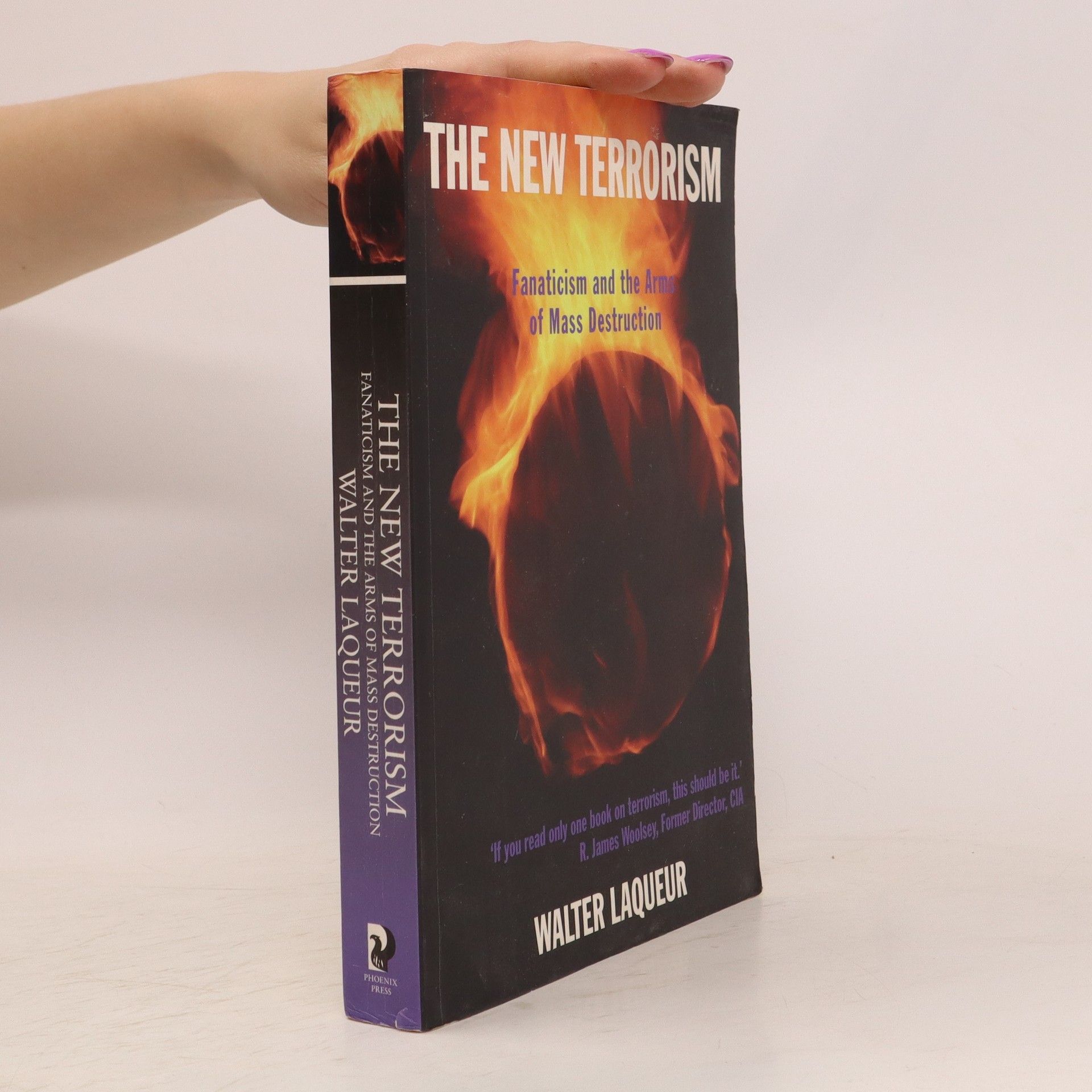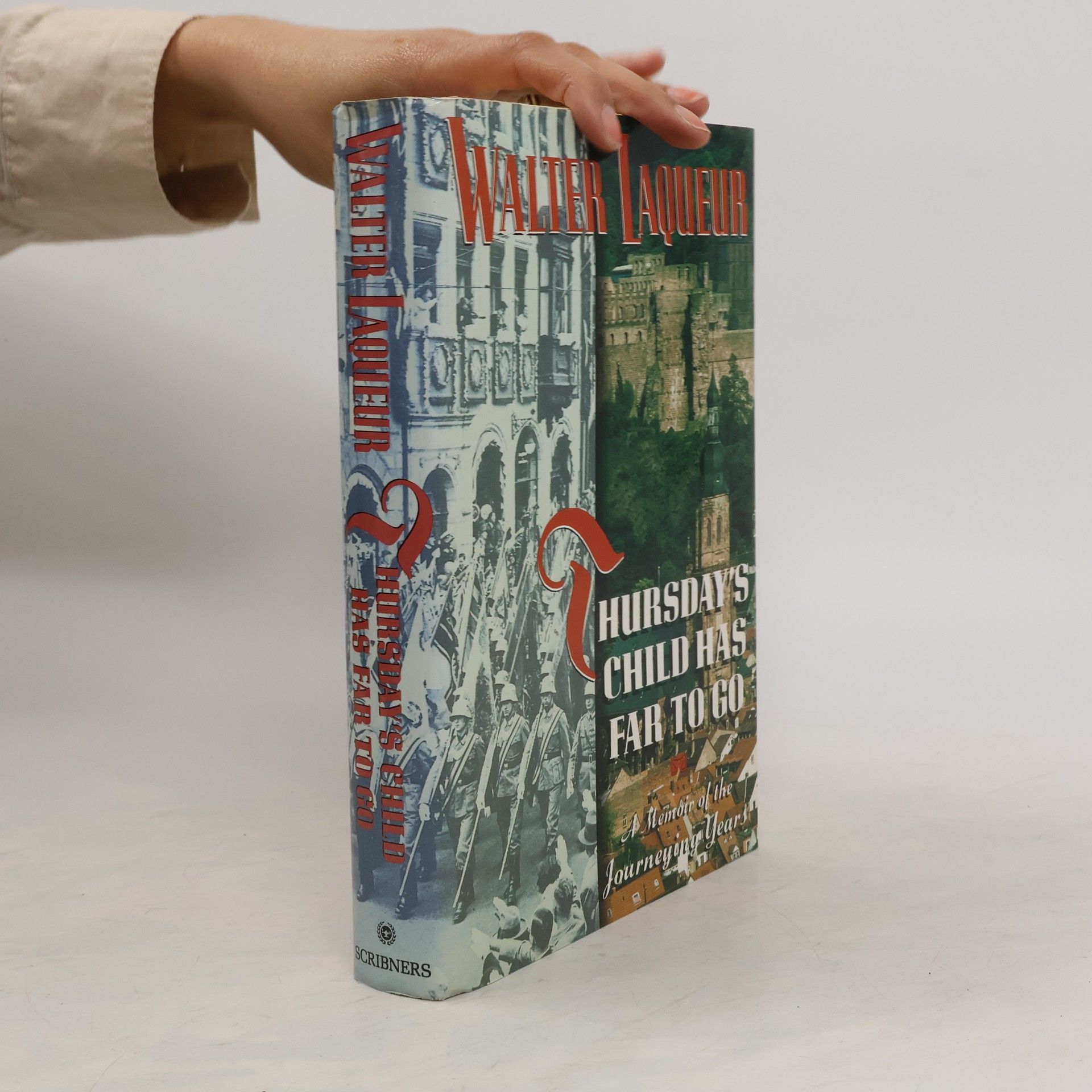Nová kniha proslulého historika Waltera Laqueura, který se ruským tématem zabývá už několik desetiletí, hledá odpovědi na otázku, jak lze vnímat prezidenta Putina a fenomén putinismu, který nabývá na čím dál větší síle. Věnuje se především myšlenkovým a politickým zdrojům z posledních dvou století i z doby středověku, které současný ruský vůdce a lidé u moci vybírají a akcentují. Laqueur velmi přesvědčivě ukazuje, že jde o státní kapitalismus s prvky liberální hospodářské politiky, do níž však neustále zasahuje stát. Jde o takzvanou „řízenou demokracii“, která západní model liberalismu a občanských svobod považuje za nepřátelský a plný ohrožujícího chaosu. Autor v několika kapitolách názorně ukazuje, jaké politické síly jsou v současném Rusku na vzestupu, jaký vztah má země k dalším rozhodujícím politickým silám ve světě (USA, Čína, Evropská unie) i jak se daří, či nedaří naplňovat představu o euroasijské koncepci. Stranou nezůstávají ani témata o ruském mesianismu, nacionalismu, pravoslavné církvi, roli oligarchů, pozici „petrostátu“ či částečné restalinizaci. Fakta i autorovy závěry jsou podpořeny podrobnými odkazy na bibliografii a dávají čtenáři mimořádnou inspiraci k tomuto živému tématu. Knihu uzavírá doslov známého publicisty a znalce ruských reálií Jefima Fištejna.
Walter Laqueur Knihy
Walter Ze'ev Laqueur bol americký historik a novinár, ktorý sa vo svojej práci zameriaval na európske dejiny 19. a 20. storočia, najmä na ruské a nemecké dejiny, a tiež na históriu Blízkeho východu. Jeho rozsiahle dielo pokrývalo široké spektrum tém, od nemeckého mládežníckeho hnutia a sionizmu po komunizmus, holokaust a diplomatickú históriu studenej vojny. Laqueur bol priekopníkom v štúdiu politického násilia, partizánskej vojny a terorizmu. Svojimi komentármi o medzinárodných záležitostiach prispieval do mnohých amerických a európskych novín a časopisov. Jeho knihy boli preložené do mnohých jazykov, čo svedčí o globálnom dosahu jeho historických analýz.

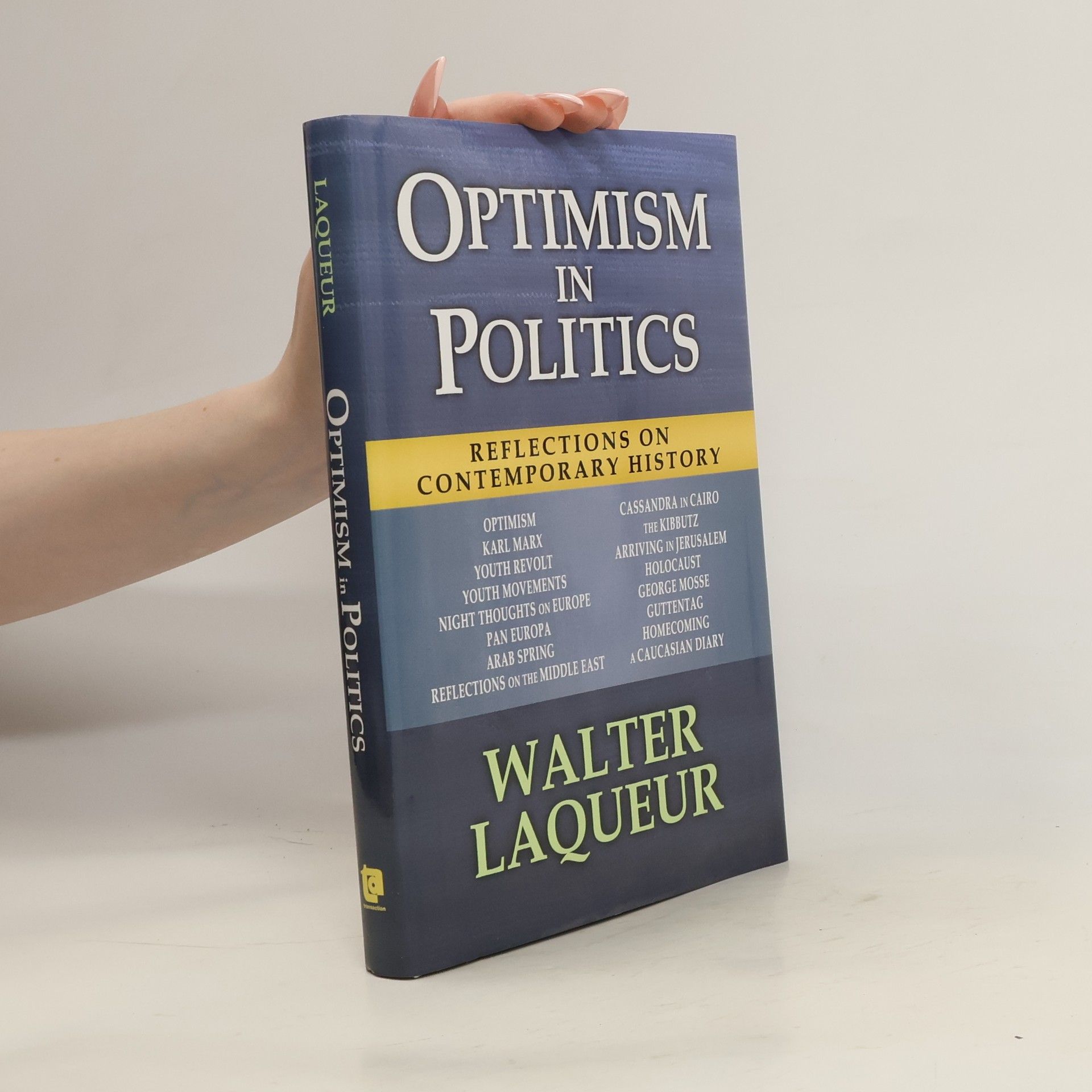

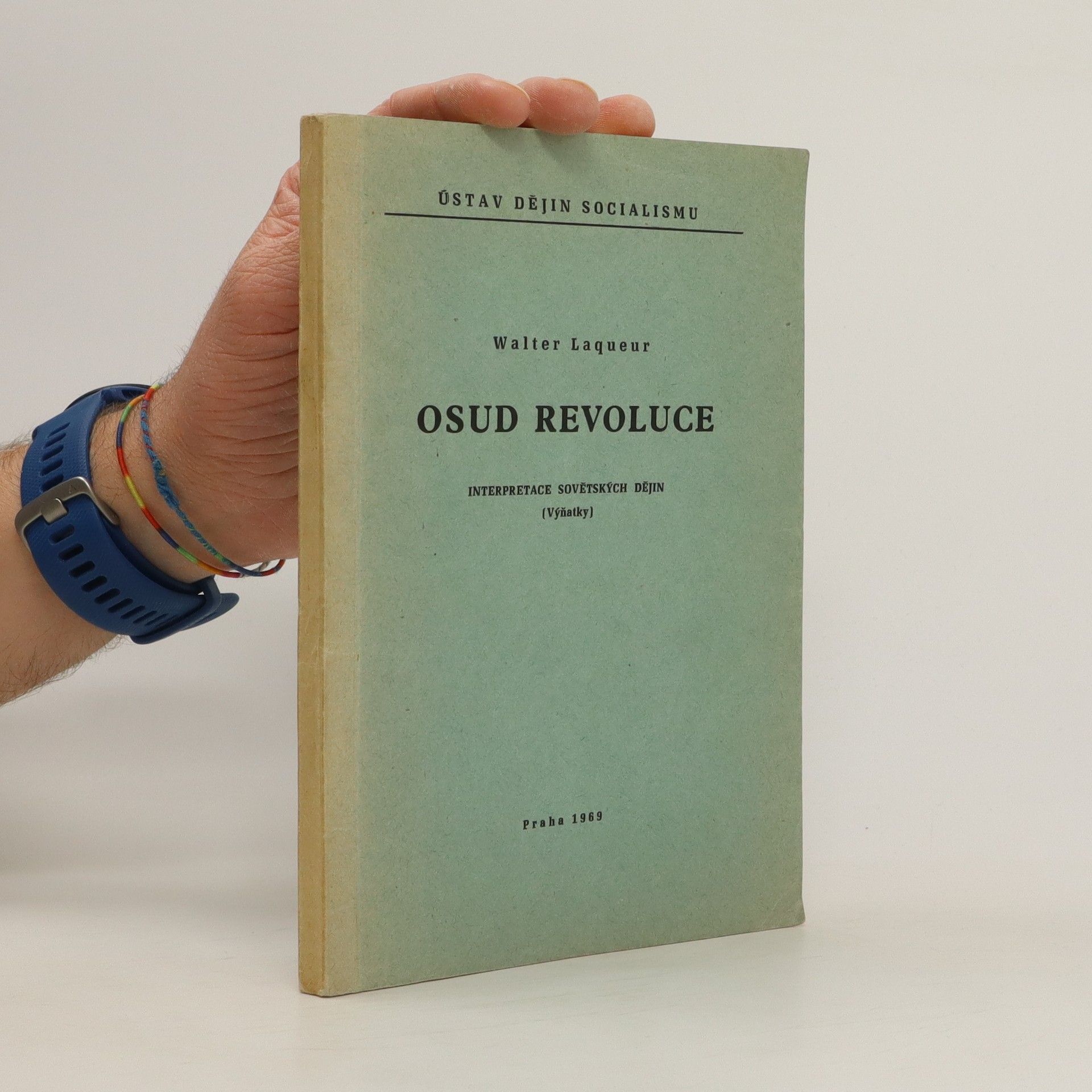
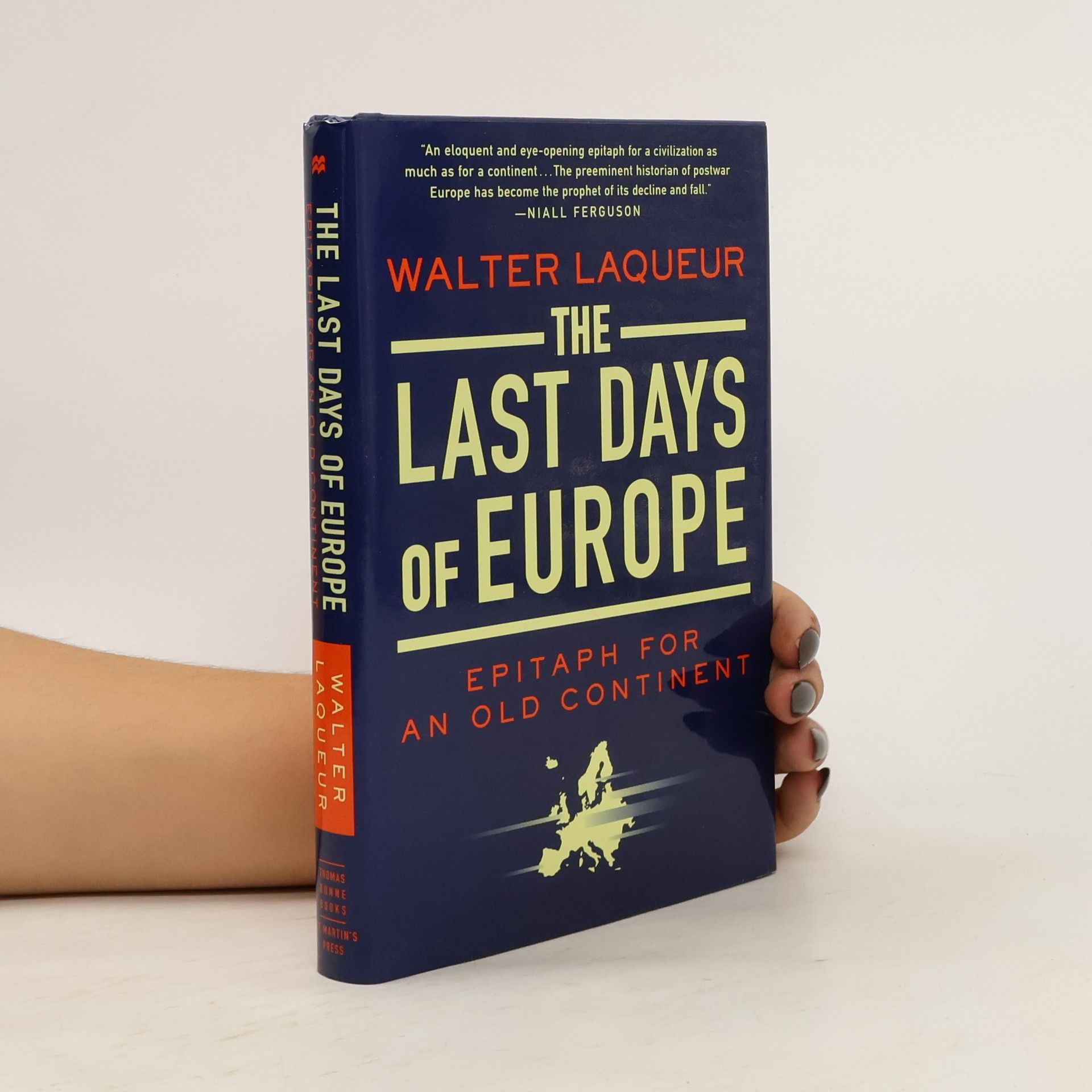

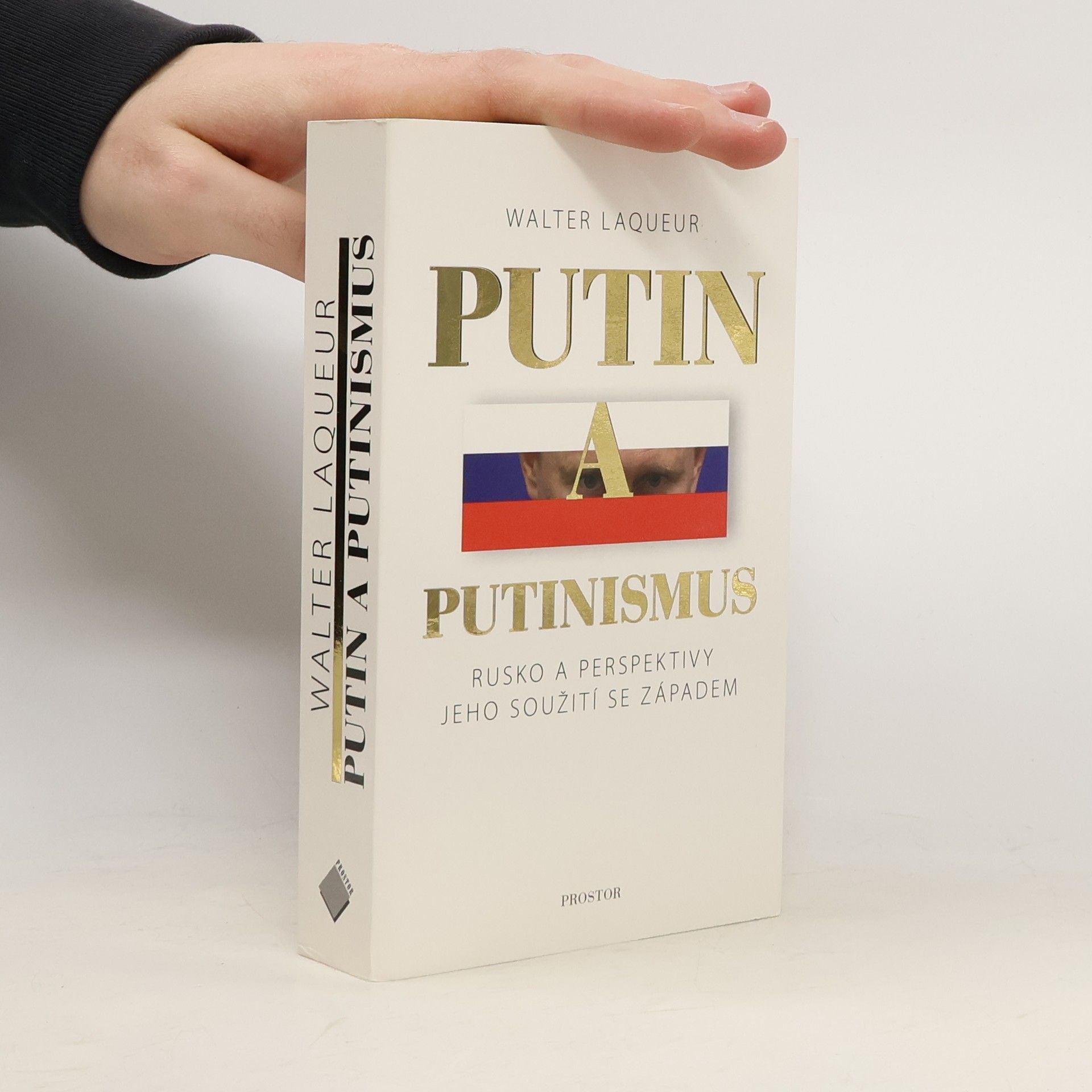
Presenting a history of anti-semitism, this book traces its evolution from the religious anti-semitism of the middle ages to a racial anti-semitism that developed in the 19th and 20th centuries. It explains its origins and rationale, how it manifests itself, the different forms of anti-semitism, and what forms it may take.
"What happens when a falling birthrate collides with uncontrolled immigration? The Last Days of Europe explores how a massive influx from Asia, Africa, and the Middle East has Loaded Europe with a burgeoning population of immigrants, many of whom have no wish to be integrated into European societies, but make full use of the host nations' generous free social services."--Jacket
This new collection by Walter Laqueur, a distinguished historian and political commentator, presents his insights on fifty years of political life through a series of essays. Covering events from over seventy years ago to potential future occurrences, Laqueur organizes his writings into five main themes: optimism in politics, Europe, the Arab Spring, Israel and Jewish affairs, and reflections on the past. He explores the crucial question of how much optimism is necessary in politics, noting that some neuroscientists argue our assessments may be overly optimistic, while others warn against the influence of negative conclusions. Laqueur contends that these psychological factors significantly impact our understanding of political trends. He also emphasizes the complex relationship between historical writing and current affairs, challenging the notion that historians are inherently better at interpreting the present or predicting the future. While some historians excel as political commentators, others do not, and Laqueur's reflections affirm his position among the successful ones. This volume serves as a testament to his insightful analysis and the importance of optimism in navigating political landscapes.
The New Terrorism
- 320 stránok
- 12 hodin čítania
Coinciding with this is the alarming increased availability of weapons of mass destruction, cheap and easily accessible chemical and biological weapons and cyberterrorism. Walter Laqueur, a world renowned expert on terrorism and international strategic affairs and author of Fascism:A Reader and Weimar (Phoenix Press), recounts the history of terrorism and examines the future of terrorism worldwide.It is only a matter of time, Laqueur argues, before the attainability of weapons of mass destruction creates a terrifying and unstable scenario. 'a discomfiting augury fore the future. Laqueur's excellent work is probably the best single volume I've seen on the phenomenon of terrorism and political violence'. Vincent Cannistraro, former Chief of CIA Counterterrorism Operations.
Generation exodus
- 400 stránok
- 14 hodin čítania
This text is a generational history of the young people whose lives were irrevocably shaped by the rise of the Nazis. Half a million Jews lived in Germany when Hitler came to power in 1933. Over the next decade, thousands would flee. Among these refugees, teens and young adults formed a remarkable generation. They were old enough to appreciate the loss of their homeland and the experience of flight, but often young and flexible enough to survive and even flourish in new environments. This generation has produced such disparate figures as Henry Kissinger and "Dr Ruth" Westheimer. Walter Laqueur has drawn on interviews, published and unpublished memoirs and his own experiences as a member of this group of refugees, to paint a vivid and moving portrait of Generation Exodus.
Book by Kupperman, R.H., Trent, Darrell M.
Thursday's child has far to go
- 418 stránok
- 15 hodin čítania
